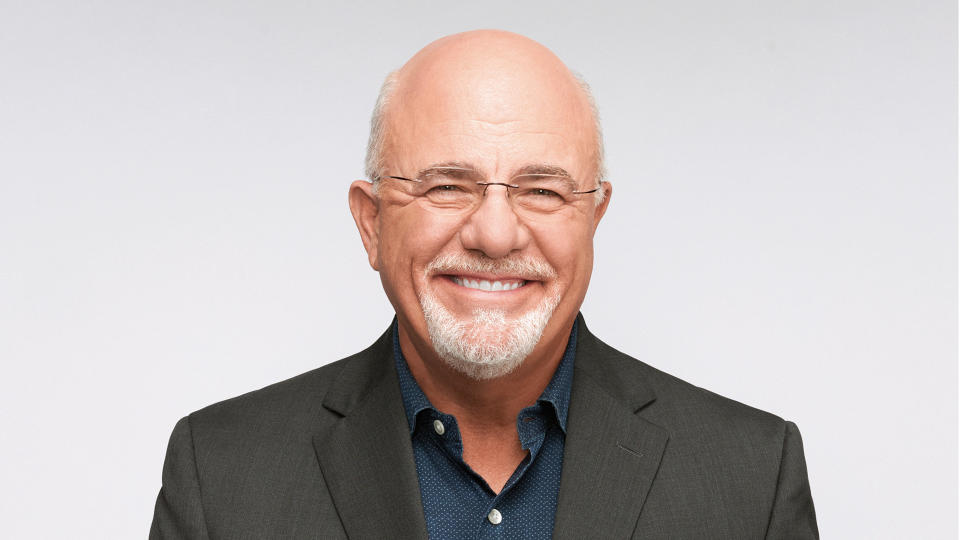Adam Palasciano
·4 min read
Investing is one of the smartest ways to grow your hard-earned money over the long term. While it can seem daunting to get started, it doesn’t have to be.
Check Out: Tony Robbins — These 3 Investments Will Make You Rich
Read Next: 5 Genius Things All Wealthy People Do With Their Money
According to a recent GOBankingRates survey, almost 50% of the survey’s participants reported not owning any stocks, with 22% having less than $15,000 in total stock investments. To add, only 17% of those surveyed said they have more than $35,000 invested.
If you identify as part of the half of Americans who aren’t investing, whether due to fear of risk or a lack of understanding, learning more can help you get started.
According to Dave Ramsey, you’ll need to conquer the first three steps of the “7 Baby Steps” before following the investment tips. Let’s break down the exact steps:
Step 1: Save $1,000 for your starter emergency fund.
Step 2: Pay off all debt (except the house) using the debt snowball method.
Step 3: Save 3-6 months of expenses in a fully funded emergency fund.
Step 4: Start investing 15% of your household income in retirement.
Step 5: Save for your kids’ college fund.
Step 6: Pay off your home early.
Step 7: Build wealth and give generously!
Building an emergency fund and paying off all debt first will put you on the right track.
Learn More: I’m a Financial Advisor — I’d Invest My First $5,000 in These 6 Stocks
Sponsored: Protect Your Wealth With A Gold IRA. Take advantage of the timeless appeal of gold in a Gold IRA recommended by Sean Hannity.
6 Key Steps To Start Investing This Year
Once you’ve mastered the first three steps of the “7 Baby Steps,” Ramsey explained the six most important steps to start investing in 2024:
Define your investing goals: Setting clearly defined investing goals for yourself is key. Ask yourself questions like: “At what age do I want to retire?” as well as “When do I want to make a downpayment on a home?” or “How much do I need to save for my child’s college fund?” Different goals have different timelines, so you’ll want to be sure that you’re investing appropriately for each one.
Determine how much you’ll invest: Evaluate your income and debt levels before investing. As a general rule of thumb, it’s advisable to save at least 15% of your income toward your retirement. While every investment goal may not be long-term and geared towards retirement,it’s important to reduce or eliminate debt (especially credit card debt which carries a high interest rate) before making investments, as highlighted earlier.
Choose your investment vehicles: There are a plethora of investment vehicles to choose from. These can range from a traditional or Roth 401(k), a traditional or Roth IRA, a Simple IRA or SEP IRA (if you’re self-employed), a 529 college savings plan, as well as mutual funds, ETFs, and bonds to name a few. You’ll want to revisit your defined investment goals before deciding which investment vehicles are right for you.
Solidify an investment strategy: Realistically, there are two main types of investment strategies: short-term and long-term. If your main objective is to save for retirement, a long-term investment strategy — including a diversified portfolio of conservative, low-risk investments such as established mutual funds and ETFs — is crucial. On the other hand, if you’re planning for a short-term investing strategy to save for a new car or a down payment on a home, taking advantage of a no-risk high-yield savings account or a money market account (MMA) is a safer bet.
Start an investment account: Now that you’ve defined clear investment goals and created a strategy, the next step is to open the investment accounts. Financial institutions such as Fidelity Investments, Vanguard, and Charles Schwab allow you to open a variety of different investment accounts that should meet your needs.
Consult with a financial professional: Be sure to consult with a financial professional such as a certified financial planner (CFP), a financial consultant, a financial coach, or an accountant. It’s a smart move to consult with an expert when you’re starting to invest to maximize your returns and navigate complex tax rules.
More From GOBankingRates
The Single Best Thing To Buy at Aldi in March 2024
5 Used Cars You Shouldn't Buy
This is One of the Best Ways to Boost Your Retirement Savings in 2024
6 Things You Should Never Do With Your Tax Refund (Do This Instead)
This article originally appeared on GOBankingRates.com: Dave Ramsey’s 6 Tips To Start Investing in 2024
